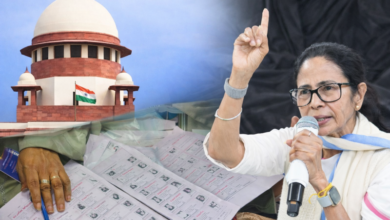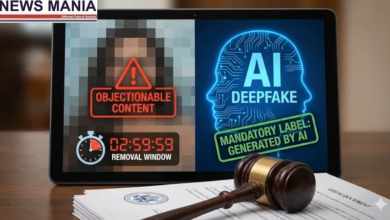In a shocking ‘digital arrest’, a Mumbai woman was forced to strip and duped out of ₹1.7 lakh.

News Mania Desk / Piyal Chatterjee / 1st December 2024
In a horrifying case of digital arrest, a 26-year-old lady in Mumbai was forced to strip during a video conversation and fooled of ₹1.7 lakh by scamsters who said her name had come up in a money laundering probe, according to police.
The woman, who resides in Borivali East and works for a pharmaceutical company, claims in her complaint that the scammers called her on November 19 and identified themselves as Delhi police officers. They informed her that her name had come up during their investigation into a money laundering case involving Naresh Goyal, the founder-chairman of Jet Airways, who is currently in jail.
The scammers threatened the woman with arrest. The conversation then switched to a video call, and she was informed that she was under ‘digital arrest’. The scammers requested the victim to arrange a hotel room so they could continue their interrogation.After checking into a hotel, the scammers requested a transfer of ₹1,78,000 to verify her bank account details. They also forced her strip during the video conference, claiming that a body verification was necessary. The woman transferred money and followed the scammers’ directions.
When she realised she had been duped, she approached the police and filed a complaint on November 28. A case has been registered under the relevant sections of the Bharatiya Nyaya Sanhit and the Information Technology Act, and additional investigation is underway. Previously, scammers used Naresh Goyal’s name to deceive Shri Paul Oswal, chairman and managing director of textile giant Vardhman Group, of ₹7 crore. In another case, the octogenarian was also informed that he was under ‘digital arrest’.
‘Digital arrest’ is a new type of scam in which fraudsters inform the victim that he or she is under ‘digital’ or ‘virtual’ arrest and must remain linked to them via video or audio calls. The target is warned that they cannot notify anyone else that they are under ‘digital arrest’ and that the surveillance will continue until the money is sent to the fraudsters’ accounts. Police have highlighted in various advisories that there is no such thing as ‘digital arrest’ or ‘virtual arrest’, but the increase in such occurrences indicates that the message has not reached a wide number of people. The chosen targets of such fraud are senior persons who are inexperienced with computers and are readily tricked into following fraudsters’ instructions.






